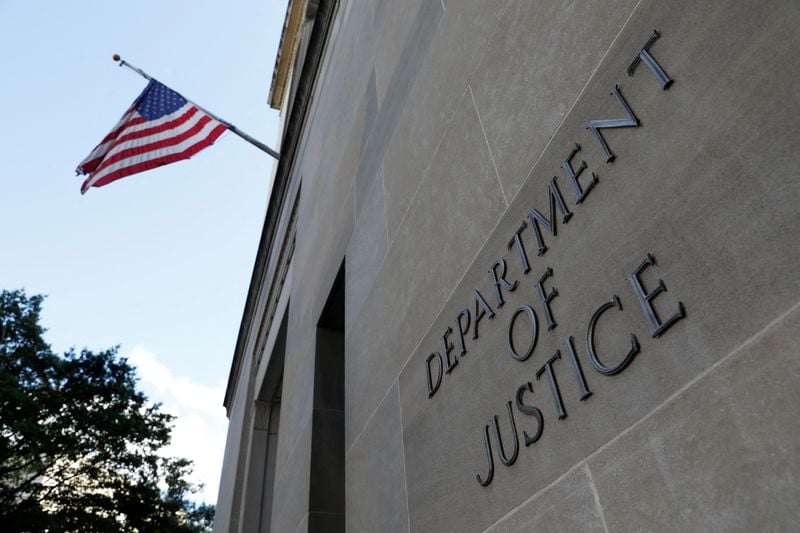The pharmacy will also be subject to a three-year Memorandum of Agreement with the Drug Enforcement Administration
GRAND RAPIDS – Sixth Street Drugs, Inc., a Munson Healthcare subsidiary located in Traverse City, Michigan, has agreed to pay $1.5 million to the United States and enter into a three-year Memorandum of Agreement with the Drug Enforcement Administration (DEA) to resolve allegations that it violated the Controlled Substances Act (CSA) by filling numerous prescriptions for controlled substances despite red flags that the prescriptions were not valid.
Under the CSA and DEA regulations, for a prescription to be effective, it must be issued for a legitimate medical purpose by an individual practitioner acting in the usual course of his professional practice. Pharmacies and pharmacists have a responsibility not to fill an invalid prescription and are prohibited from dispensing pursuant to an invalid prescription. When the circumstances around a prescription raise a red flag—a reasonable suspicion that the prescription is not valid—the pharmacist must conduct a further inquiry to ensure the prescription is valid. The CSA provides significant penalties, currently up to $72,683.00 for each such violation.
The government began investigating Sixth Street Drugs based on information that it was an outlier in a number of categories relating to schedule II controlled substances, including its quantities of oxycodone, hydrocodone, morphine, and amphetamine. Following an administrative inspection in 2019, DEA alleged that Sixth Street Drugs failed to identify and resolve numerous red flags before filling prescriptions. Among other things, DEA contended that Sixth Street Drugs:
- filled hundreds of prescriptions that resulted in patients receiving dangerous drug cocktails (such as opioids with benzodiazepines, muscle relaxants, and/or stimulants);
- filled prescriptions that resulted in patients receiving extraordinarily high opioid doses that far exceeded federal dosage guidance;
- filled prescriptions for hundreds of individuals who were traveling long distances to receive prescriptions and to fill them at Sixth Street Drugs;
- filled prescriptions for many patients who had prescriptions from numerous prescribers and used multiple pharmacies (physician-shopper and pharmacy-shopper patients);
- filled prescriptions for patients of several providers who issued suspicious prescriptions and have since been sanctioned by state and federal authorities;
- provided early refills of opioid prescriptions on hundreds of occasions; and
- lacked appropriate written policies and procedures relating to dispensing controlled substances.
As part of the settlement, Sixth Street Drugs entered into a three-year Memorandum of Agreement with DEA that, among other things, prescribes Sixth Street Drugs’ drug-handling responsibilities, mandates external controlled substance audits, and requires Sixth Street Drugs to institute a broad- based educational program focused on preventing drug diversion. In reaching this settlement, the government recognized the substantial steps Munson Healthcare took in response to DEA’s investigation to address problems relating to Sixth Street Drugs’ handling of controlled substances.
“Prescription drug abuse and diversion—and the overprescribing that often enables them—have caused tremendous damage throughout the Western District of Michigan,” said U.S. Attorney Mark Totten. “My office will continue to investigate and hold accountable those who fail to live up to their legal responsibilities and contribute to this crisis, including pharmacies and physicians.”
Kent R. Kleinschmidt, DEA Acting Special Agent in Charge for the Detroit Field Division, stated, “careless behavior and negligence allow for substances to be diverted and sold on the black market with no measure of accountability. This is the type of reckless behavior that fuels the opioid epidemic gripping the nation. DEA is committed to pursuing anyone who doesn’t live up to their obligations in safeguarding controlled substances.”
The resolutions obtained in this matter were the result of a coordinated effort between the U.S. Attorney’s Office for the Western District of Michigan and the DEA. The case was investigated by the DEA Grand Rapids District Office Tactical Diversion Squad. The United States was represented by Assistant U.S. Attorney Ryan Cobb.
The claims resolved by the settlement are allegations only and there has been no determination of liability.
###
